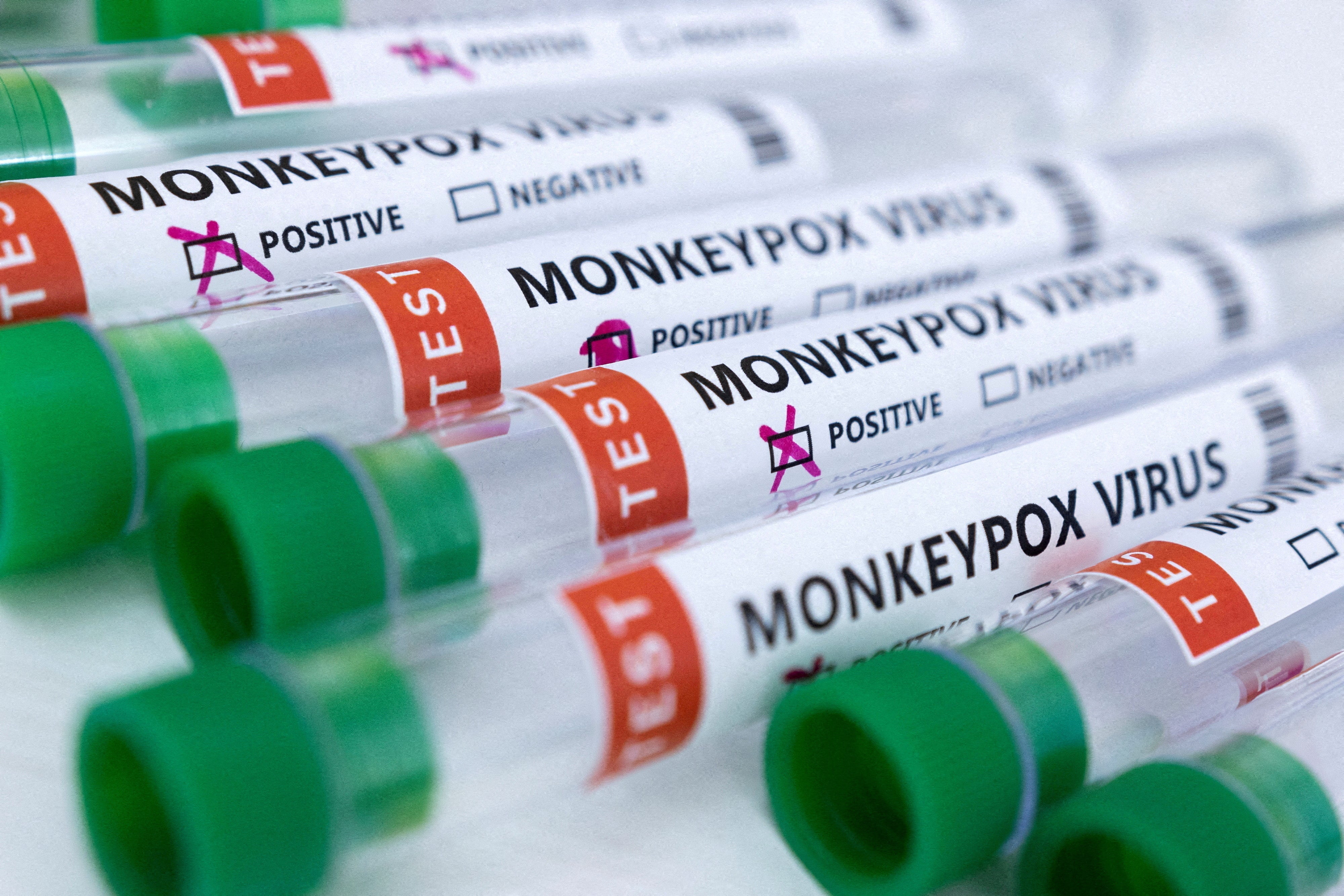Why is the monkeypox vaccine only being offered to men?
Officials seem to have neglected one group that also face an elevated risk – female sex workers


Your support helps us to tell the story
From reproductive rights to climate change to Big Tech, The Independent is on the ground when the story is developing. Whether it's investigating the financials of Elon Musk's pro-Trump PAC or producing our latest documentary, 'The A Word', which shines a light on the American women fighting for reproductive rights, we know how important it is to parse out the facts from the messaging.
At such a critical moment in US history, we need reporters on the ground. Your donation allows us to keep sending journalists to speak to both sides of the story.
The Independent is trusted by Americans across the entire political spectrum. And unlike many other quality news outlets, we choose not to lock Americans out of our reporting and analysis with paywalls. We believe quality journalism should be available to everyone, paid for by those who can afford it.
Your support makes all the difference.It can take a bit of time to work out which groups of people face the increased risk of contracting a virus. Unlike the coronavirus – which turned out to be especially virulent – the monkeypox virus is proving to be more selective and certainly nowhere near as infectious.
When monkeypox emerged in the UK just a few weeks ago, there was barely any mention of which groups were at risk. Partly because we didn’t know – but even when it did become clearer that it was men who have sex with men who were particularly susceptible to contracting the virus, there was a fear that saying this publicly could foster stigma for a group all too familiar with bigotry.
But now the UK Heath Security Agency has at last unveiled its strategy to try and mitigate the spread of the monkeypox virus – and its main intervention will be to offer a vaccine to gay and bisexual men.
The agency officially acknowledges that rates of transmission are significantly higher in the male gay community, although is keen to stress that the virus is not exclusively found in this group. They are at pains to spell out that although this virus is not classed as a sexually transmitted disease, the main route of transmission happens during intimate sexual contact.
While I agree with using public health intelligence to target those most at risk of contracting this virus, they seem to have neglected one group that also face an elevated risk: female sex workers. Monkeypox won’t give a jot whether sexual intimacy happens between same sex or mixed sex couples. Those who have more sex, with multiple partners, are still at risk.
Not for the first time have women been overlooked when a virus emerges, and public health advice and intervention begin to be formulated. Back in the 1980s and 1990s, when HIV emerged and began spreading among the male gay community, women were ignored – particularly female sex workers.
If we are serious about tackling this virus, we must target all those at risk – not just one group. Perhaps this lack of attention to women is not passive and the result of our cultural inability to talk about sex. I really hope it isn’t, but am convinced that our collective sexual coyness has played a role.
Denial of sex work has been a well-trodden strategy for many policymakers and some public health officials for decades, reflecting the wider denial and shyness we have when it comes to sex and commercial sex in particular.
It took years (and lord knows how many lives cut short) before women were included in the effort to reduce HIV transmission – and it looks as though we are destined to repeat this fatal error with monkeypox. We could change this quickly if we had the will and were just a bit more mature about sex in all its forms: domestic and commercial.
To keep up to speed with all the latest opinions and comment sign up to our free weekly Voices Dispatches newsletter by clicking here
Unless we change our social attitudes, women will suffer unnecessarily – and some will pay with their lives, simply because of our collective embarrassment about sex.
But there’s another problem, too: if we aren’t willing to talk about sex and those involved in the sex business, facts give way to fiction. The public health vacuum is all too quickly filled with rumours and anecdotes rather than evidence and science. Again, this disadvantages some more than others – the higher the risk you face from this virus, the greater your need is for the truth.
It is really good news that the monkeypox vaccine will be given to gay and bisexual men as a priority – but there are women who should be included in this targeted health intervention.
And perhaps the most urgent innoculation we need is against our embarrassment about sex. Then, real progress could be made in reducing the risks and fatalities that marginalised groups continue to face unnecessarily.
Ian Hamilton is a senior lecturer in addiction and mental health at the University of York
Join our commenting forum
Join thought-provoking conversations, follow other Independent readers and see their replies
Comments